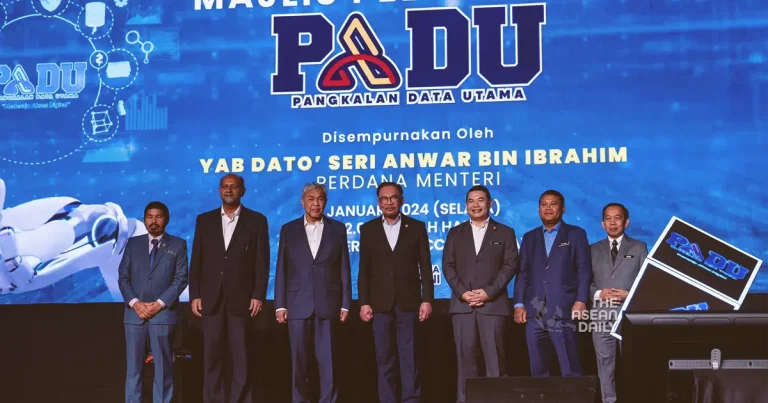2-1-2023 (KUALA LUMPUR) Malaysia has introduced the Central Database Hub (PADU), a comprehensive information repository for its citizens and permanent residents, accessible to all government agencies, in a bid to refine its targeted subsidy approach. The launch of PADU on Tuesday (Jan 2) aims to ensure that government subsidies are received only by those who truly need them, while addressing concerns about data security.
Prime Minister Anwar Ibrahim stated that PADU will guarantee that benefits are enjoyed by the entitled recipients, reducing costs and minimizing financial leakages. He emphasized the importance of effective implementation and the prevention of fraud and leakages that can occur without such a system in place. Anwar also highlighted potential savings of over RM4 billion (US$870 million) by excluding foreigners and wealthy individuals from electricity subsidies through the use of PADU.
During his Budget speech in October of the previous year, Anwar announced that his administration would adopt a targeted approach for subsidy disbursement starting from 2024. This move is intended to address the negative impact on Malaysia’s government finances caused by broad-based subsidies, such as those related to fuel.
According to Economy Ministry secretary-general Nor Azmie Diron, PADU will serve as a centralized reference containing comprehensive details on individuals, including demographic information, education, health, household income, and records of social assistance received. Economy Minister Rafizi Ramli emphasized the benefits of PADU, stating that it will enable more accurate data analytics and facilitate streamlined delivery channels and effective program implementation. Citizens are encouraged to review and update their information on the integrated database, with a deadline of March 31 this year.
Rafizi acknowledged cybersecurity concerns and assured the public that measures have been implemented to protect the data in PADU. Precautionary measures include the establishment of comprehensive standard operating procedures (SOPs) and strategic cooperation between various groups, such as the National Cyber Security Agency (NACSA), the Office of the Chief Government Security Officer (CGSO), CyberSecurity Malaysia, and the Department of Personal Data Protection (PDP). Independent experts with expertise in relevant fields have also been appointed to ensure the incorporation of the latest and best safety features in PADU’s development.
Malaysia has experienced data breach attempts on several government agencies in recent times. In December 2023, the social security organization (SOCSO) confirmed a cyber attack on its systems, databases, and websites, following an attempted data breach in September. A report by CyberSecurity Malaysia revealed that the government sector accounted for 22% of all data breaches in the country during the first half of 2023.




